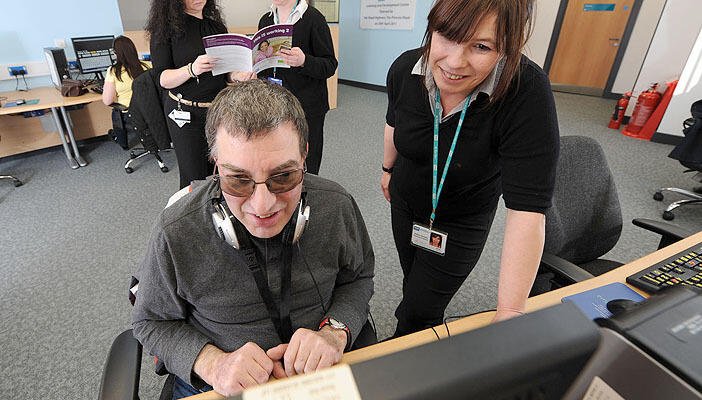RNIB demands urgent Government action to address Access to Work delays
Thousands of jobs and careers at risk due to increasing delays

The UK Government’s Access to Work scheme provides crucial support, such as specialist equipment and support workers, for many blind and partially sighted workers. The current lengthy delays, often as long as six months, for applications and claims to Access to Work are putting thousands of jobs at risk for people with disabilities or long-term health conditions, including many people with sight loss.
These delays are getting worse, with 25,103 outstanding applications in December 2022, an increase of more than 10,000 in 12 months.
“We are calling on the Department of Work and Pensions (DWP), which runs Access to Work to take decisive and comprehensive action to cut the backlog urgently”
She added: “These delays are harming many blind and partially sighted people’s ability to secure, or retain, employment, which is more important than ever during the current cost of living crisis.”
Blind and partially sighted employees tell us how the delays are affecting their work
“I require a support worker. Due to the delays, I am unable to perform elements of my role. I have had to have my duties reduced. This is having a significant effect on my mental health and has meant I have lost a lot of confidence. I am worried that if a support worker isn’t in place, I may not pass my probationary period.”
“If I need to travel somewhere for work, I need to bring a support worker with me. I must pay my support workers travel costs and claim the money back. Sometimes that's £100 or £200 a month that I'm having to pay up front that my wage does not cover. I'm then waiting months to get that money back in the middle of a cost of living crisis.”
RNIB calls for urgent action
The Minister for Disabled People, Tom Pursglove MP, has said: “We will continue to galvanise action across Government and outside Government to ensure that we are ambitious about the employment of disabled people and people with health conditions.”
But, to achieve this, the DWP needs to urgently take decisive and comprehensive action to tackle the delays.
RNIB is calling on Mel Stride MP, the Secretary of State for the DWP, to:
- Provide adequate resources to Access to Work so that support is put in place within four weeks of any application and claims are promptly processed.
- Remove the need for an Access to Work renewal process for customers when their support needs are not changing.
- Automatically extend Access to Work packages until renewals can be processed so individuals can retain support.
- Provide automatic software upgrades to software previously approved as part of an Access to Work grant.
- Provide a cost of living update for the value of Access to Work grant payments.
- Fast track applicants who know what support they need.





